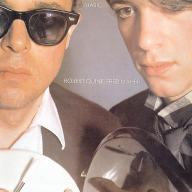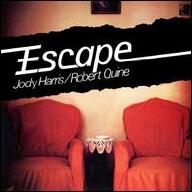Quine was born in Akron, Ohio, in the waning days of 1942. While Quine's parents were music fans with a special enthusiasm for Brazilian music, young Robert's enthusiasm was piqued with the rise of rock & roll in the mid-'50s. The first record he purchased was "Why Do Fools Fall in Love?" by the Teenagers ("The sax solo in the middle was completely inappropriate -- it almost sounds like Albert Ayler," Quine told Jason Gross in a 1997 interview), and his early influences included James Burton, Ritchie Valens, and Buddy Holly. In 1958, Quine got a guitar and started learning how to play, and by the time he enrolled at Earlham College in Richmond, Indiana, he was playing Link Wray and Ventures covers with a local band. As rock & roll sunk into the teen idol era, Quine's passions turned to raw blues sounds like John Lee Hooker and Lightnin' Hopkins and jazz players like John Coltrane, Miles Davis, and Pharoah Sanders. His interest in rock was renewed by the rougher sounds of the Rolling Stones and, later, the Velvet Underground. A passionate fan of their recordings, Quine first saw the Velvets while he was studying law at Washington University in St. Louis, Missouri, in 1969, and after moving to San Francisco later that year he caught up with the band several more times. He struck up a friendship with the group and recorded a number of their shows on a portable cassette machine; tapes from Quine's archive later formed the basis of the three-CD set The Velvet Underground Bootleg Series, Volume 1: The Quine Tapes, released in 2001.
After failing to pass the bar exam in California, Quine lost interest in practicing law as well as playing live music (his dislike of the San Francisco music scene didn't help), and in 1971 he moved to New York City. For several years, he worked for Prentice-Hall Publishing, writing books on tax law, and began acquainting himself with the New York music scene. After quitting Prentice-Hall, Quine took a job at Cinemabilia, a fabled New York bookshop specializing in writings on film as well as rare movie posters and stills. There, Quine met fellow employee Richard Hell, and the two struck up a friendship over frequent discussions of music and film. After Hell left the Heartbreakers, he was keen to start a group of his own, and persuaded Quine to join him. It didn't take long for Richard Hell the Voidoids to become one of the most popular and acclaimed bands on New York's budding punk rock scene, and more than a few critics singled out Quine's gritty but stylish lead guitar figures for special praise (while often noting his balding pate and fondness for black sport jackets and button-down collars). One writer, the legendary Lester Bangs, even went so far as to hire Quine to play on his debut single, "Let It Blurt"/"Live," when Bangs made his belated debut as a vocalist. Blank Generation, the 1977 debut album from Richard Hell the Voidoids, won rave reviews but only modest sales, and a combination of record company problems and a lack of enthusiasm on Hell's part for the music business meant that their follow-up, Destiny Street, wouldn't be released until 1982. While Quine popped up on sessions for Lydia Lunch and Material in the interim, he began earning a reputation as a choosy player who was more interested in working with people he respected rather than racking up lots of credits. Three musicians who certainly fell into that category were fellow New York underground guitarist Jody Harris, with whom Quine recorded a duo album, Escape; Material drummer Fred Maher, who paired up with Quine for another duo set, Basic; and former Velvet Underground frontman Lou Reed. Reed persuaded Quine to join his band for the recording of his 1982 album The Blue Mask, and the sessions marked a striking creative comeback for Reed as both a songwriter and a musician, while Quine's Stratocaster runs proved to be a perfect foil for Reed's guitar playing. Working with Reed considerably raised Quine's profile, and he returned for Reed's next album, 1983's Legendary Hearts, but the two had a falling out and Quine was fired shortly before Reed began work on 1984's New Sensations. When that album became an unexpected commercial success, Reed persuaded Quine to sign on for a world tour that was documented on Live in Italy.
After parting ways with Reed a second time in 1985, Quine (who strongly disliked touring) stayed busy with a variety of studio projects, and played sessions for Tom Waits, Marianne Faithfull, Brian Eno, and John Zorn, among others. Quine also struck up unexpected partnerships with two respected pop songwriters, Lloyd Cole and Matthew Sweet; Quine added subtle but incisive lead guitar on Cole's albums Lloyd Cole (1990), Don't Get Weird on Me Babe (1991), and Love Story (1995), while he took on a more aggressive role on Sweet's breakthrough album Girlfriend (1991) and the follow-ups Altered Beast (1993) and 100% Fun (1995). Quine continued to work frequently with Zorn into the new millennium, and in 2000 recorded a one-song reunion with the original lineup of Richard Hell the Voidoids, a tune called "Oh," which was recorded for an online music service (the track later appeared on the compilation album Beyond Cyberpunk). In August 2003, Quine's wife, Alice, died unexpectedly. The following May, Quine died by suicide at age 61. ~ Mark Deming, Rovi
|
1
|
|
Summer Storm |
|
2
|
|
'65 |
|
3
|
|
Village |













